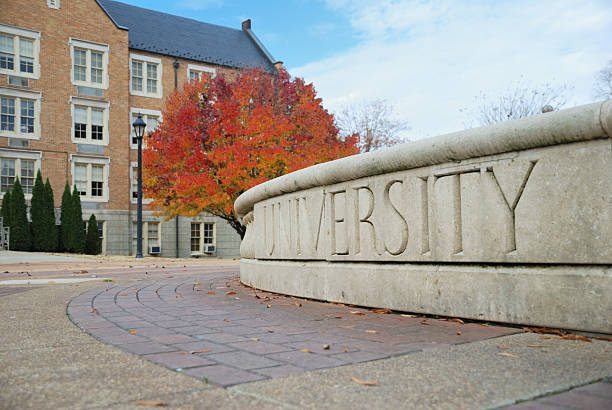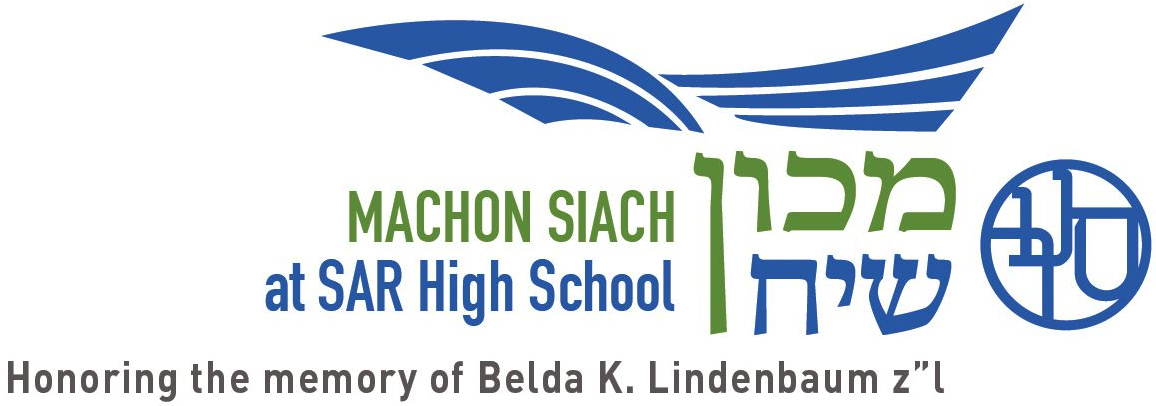
What Else is Happening on College Campuses?
Second only to the news from Israel, shocking updates from America’s college campuses fill our newsfeeds and inboxes, and the outrages continue to grow; instances of antisemitism at these supposed bastions of critical thinking – places we send our children so they can join the modern world while maintaining their Orthodox beliefs and practices – range from dismaying to truly world-upending. These reports are forcing the Jewish community to reconsider our relationship to elite universities and, we hope, pressuring those universities to rethink their policies and the miseducations they offer in the realm of Israel and antisemitism.
At the same time, as an SAR high school teacher who speaks with many current college students and as the parent of a college student, I see another angle of students’ current experiences that is also worth highlighting. Many students have shared that, since October 7, they feel engaged in campus Jewish life, and witness fellow students engaged in campus Jewish life, in a new and more meaningful way. This is not true of all students, and it is not true on all campuses, and we must continue to be vigilant, protecting vulnerable students in hostile environments. At the same time, we can open ourselves to some of the more hopeful stories emerging from colleges as well, noting how our students demonstrate true leadership even in these dark times.
Students described to me countless student-led initiatives, including all-night learning, rallies, opportunities to recite tehillim, challah bakes, suitcases filled with supplies for chayalim, articles written for campus newspapers, tutoring programs for young Israeli students over Zoom, extensive fundraising efforts, massive vigils, and even art projects. Students at Washington University in St. Louis, for instance, joined together to paint three panels of an underpass on campus, through which thousands of students pass daily, with murals and posters of the hostages. The murals remained for weeks before it was another student group’s turn to use the panels, and the Jewish students repeated their efforts a few weeks later. Noam Karger, a Wash U student, noted that students from various campus groups also united for a huge vigil, rivaling the largest Jewish event on campus each year: “all the Jewish organizations on campus really worked together to make it happen, which is not to be taken for granted.”
Similarly, Eytan Saenger, an SAR grad currently at SUNY Binghamton, described “all of Binghamton’s Jewish student organizations, including Chabad, BUZO (Binghamton University Zionist Organization), Hillel and JLIC, partnering to organize a moving vigil with over 700 Jewish community members. The event, held against the backdrop of the library clock tower lit blue and white for Israel, was a moving display of unity.” When organizations that may not usually partner come together, students feel the difference and recognize what Jewish unity can accomplish.
At the University of Maryland, 1200 students gathered on the mall for a vigil at which the university president spoke, and 250 students attended a Hillel town hall meeting with multiple administrators, the University of Maryland Assistant Police Chief, and several of the university’s diversity and inclusion directors. The students prepared questions for these campus leaders, who “gained a greater understanding for how the Jewish community felt and what we need from them.” As student Deena Karger explained, “It is extremely important to note that the majority of [our dozens of] initiatives were organized and run by students at Maryland with very minimal help from adults. It has honestly been inspiring to watch and be a part of.”
Again and again, students expressed that they feel part of something larger than themselves: by coming together on campuses across the country, they recognized that they are not alone in their mourning or in their celebrations of Jewish identity. As Eitan Marks, an SAR alumnus and President of Brandeis Hillel said, “The most meaningful way students have been supported is by being in community… We have seen increased attendance at all Jewish programs and events. Our Shabbat dinner attendance is requiring us to set up overflow rooms to accommodate the bigger crowd.”
Other students expressed similar emotions, saying they are spending more time at Hillel than they had anticipated and that, for the first time, college feels like home. One SAR alumna, for instance, expressed that Harvard had never felt like the right fit for her, but the events of October 7 have galvanized her to feel more integrated into the Harvard community, giving her a purpose and a place there that she hadn’t felt before. Reyna Perelis, an SAR graduate now at Princeton, expressed sentiments of belonging as well: “I came into college hoping to make good friends who were not Jewish. That felt very important to me, and possible… But overall, I feel comfortable and secure in the Hillel, more so than I anticipated or than I wanted to be. Moreover, I think the war has made clear for me that ultimately, these are my people. I don’t think I felt that as concretely before the war.” This is a complex set of emotions for our students to parse, but they are thinking insightfully and with nuance about the tensions we have always faced as Modern Orthodox Jews, and they are finding their places, perhaps more secure in their Judaism as a group than they have ever been.
Intellectual opportunities abound as well, including Princeton’s panel discussion between Princeton School of Public and International Affairs’ Dean Amaney Jamal (who is from the West Bank) and former US Ambassador to Israel Daniel Kurtzer. Reyna describes them speaking “as long-time friends and partners in making space for considerate and honest dialogue about Israel-Palestine.” At Brandeis, instead of counterprotesting during a hate-filled rally, Hillel offered a class with Professor Jonathan Sarna, who taught about Brandeis’ deep ties with and pioneering role in Israel studies, and Eitan Marks reports that “our Hillel lounge was the most packed it has ever been.”
I was drawn to uncover these and dozens more stories like them because my own son, Akiva Davis, a student at the University of Chicago, shared with me and my husband that he and his fellow Yavneh (the Orthodox campus organization) students had to step up when their OU-JLIC rabbi, Yehuda Auerbach, returned to milu’im in Israel the day after the attacks. Akiva and his classmates created a spreadsheet to help the rebbetzin with her three young children, taking babysitting shifts, folding laundry and going grocery shopping between classes, and even learning to check the eruv, which was one of the rabbi’s many responsibilities. When the rabbi was able to FaceTime with the students from his base in Israel, they felt genuinely connected to the ongoing war, recognizing that, even from an American campus, they had a part to play.
No one would wish for American Jews to face this reckoning with the universities we thought were our intellectual homes. But hearing from our students is not merely upsetting; it is also deeply, profoundly inspiring. As with so much else during this terrible time, we must try to hold multiple truths simultaneously: the world is on fire. The kids are alright.


